Aukus: Defence alliance one for the ages as China threat grows
AUKUS pact to deliver sovereign nuclear sub, missile program for greatest projection of our military power into the Indo-Pacific.
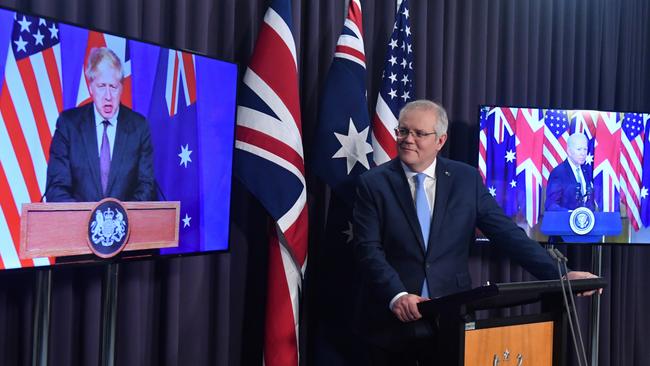
Australia has signed a historic three-way defence pact with the US and the UK to deliver a sovereign nuclear submarine and missile program in the greatest projection of the nation’s military power into the Indo-Pacific region.
It comes as Scott Morrison warned of a rapidly deteriorating strategic environment amid China’s increasing militarisation and signalled the nation’s defence spending would have to be sustained above the current benchmark of 2 per cent of GDP.
The agreement will deliver a fleet of eight nuclear-powered submarines, following the dumping of the $90bn French contract for 12 conventionally powered vessels, with Australia the only country other than the UK to be given access to the highly guarded US nuclear technology.
The agreement will provide access to electronic warfare technology capable of knocking out power grids, key electronic systems such as banking and crippling vessels before they leave port. It will also fast-track access to missile technology such as Tomahawk cruise missiles.
“The relatively benign security environment that Australia has enjoyed over many decades in our region is behind us,” the Prime Minister said.
“We have entered, no doubt, a new era, with new challenges for Australia and for our partners and friends and countries right across our region. This challenge will require more of Australia.
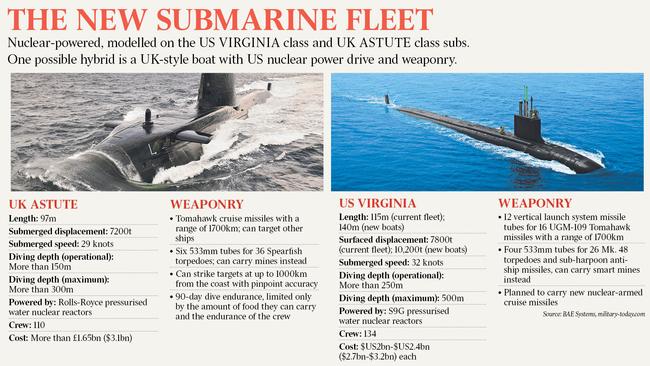
“Today we join our nations in a next-generation partnership built on a strong foundation of proven trust. We have always believed in a world that favours freedom, that respects human dignity – the rule of law, the independence of sovereign states and the peaceful fellowship of nations.
“It is the single largest step we have been able to take to advance our defence capabilities in this country, not just at this point but for the future.”
The announcement drew conditional bipartisan support from Labor but condemnation from Anthony Albanese for the $2.67bn already spent on the French submarine contract that has now been jettisoned.
Mr Morrison also said there was an “open invitation” for China to discuss the new defence pact and “other matters”.
The tripartite defence alliance named AUKUS and dubbed a “forever” agreement by Mr Morrison was unveiled in a co-ordinated video announcement on Thursday morning with US President Joe Biden and UK Prime Minister Boris Johnson.
Mr Morrison said the agreement was the most significant defence and security agreement since the ANZUS treaty was signed in 1951.
The pact will see Australia given access to the most sophisticated military technology and hardware, including long-range missiles, cyber warfare and undersea drone and sensor capability.
The new security partnership drew strong condemnation from Beijing on Thursday night.
“The US, UK and Australia are engaging in co-operation in nuclear-powered submarines that greatly undermines regional peace and stability, aggravates (an) arms race, and hurts the international non-proliferation efforts,” China’s foreign ministry spokesman Zhao Lijian said.
“Australia is a non-nuclear-weapon state party to the NPT and a party to the nuclear-weapon-free zone in the southern Pacific.
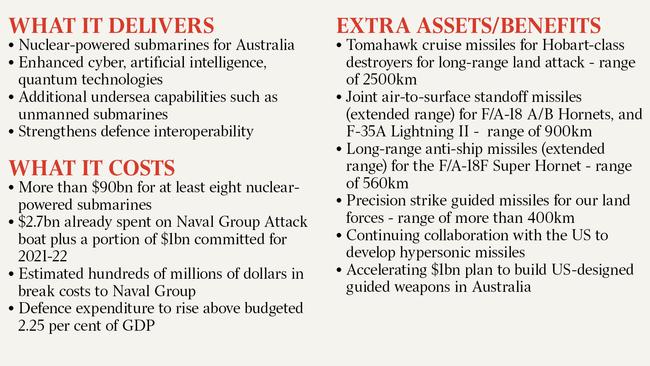
“The relevant countries should abandon the absolute Cold War zero-sum mentality and narrow-minded geopolitical concept(s), respect regional people’s aspirations and do more things conducive to regional peace and stability and development. Otherwise they will only end up hurting their own interests.”
The Xi administration spokesman repeated Beijing’s long-held official line that the breakdown in the Australia-China bilateral relationship lay “entirely with Australia”.
“The most urgent task now is for Australia to face up to the reasons for the frustration of the relationship between the two countries and think carefully about whether to treat China as a partner or a threat,” he said.
Mr Morrison provided an assurance that Australia was “not seeking to establish nuclear weapons or establish a civil nuclear capability” and said the new fleet of nuclear submarines would be built in Adelaide.
“We will continue to meet all of our nuclear non-proliferation obligations,” he said.
Mr Biden said the defence alliance was needed to address both the current strategic environment in the region and how it might evolve over time “because the future in each of our nations and indeed the world depends on a free and open Indo-Pacific enduring and flourishing in the decades ahead.
“This initiative is about making sure that each of us has a modern capability. For most modern capabilities, we need to manoeuvre and defend against rapidly evolving threats,” he said.
“AUKUS will bring together our sailors, our scientists and our industries to maintain and expand our edge in military capabilities and critical technologies such as cyber and artificial intelligence.”
Mr Johnson said: “We’re opening a new chapter in our friendship and the first task of this partnership will be to help Australia acquire a fleet of nuclear-powered submarines.
“Only a handful of countries possess nuclear-powered and it is a momentous decision for any nation to acquire this formidable capability. And, perhaps, equally momentous for any other state to come to its aid.
“Australia is one of our oldest friends, a kindred nation and a fellow democracy and a natural partner in this enterprise.”
Mr Morrison first raised the prospect of Australia gaining access to US nuclear submarine technology with Mr Biden this year, after an extensive process within Defence to decide whether the option was feasible and official-level talks with both the US and UK.
The Opposition Leader said Labor’s support would continue on the basis there would be no requirement of a domestic nuclear industry, no nuclear weapons and continuing commitment to nuclear non-proliferation.
The Macron government accused Australia of betrayal for cancelling $90bn of French-designed submarines, blasting the move as “contrary to the spirit and the letter” of co-operation between the two countries.
Mr Morrison said he hoped Australia and France could continue their strong partnership in the Indo-Pacific “once we move past what is obviously a very difficult and disappointing decision for France”.

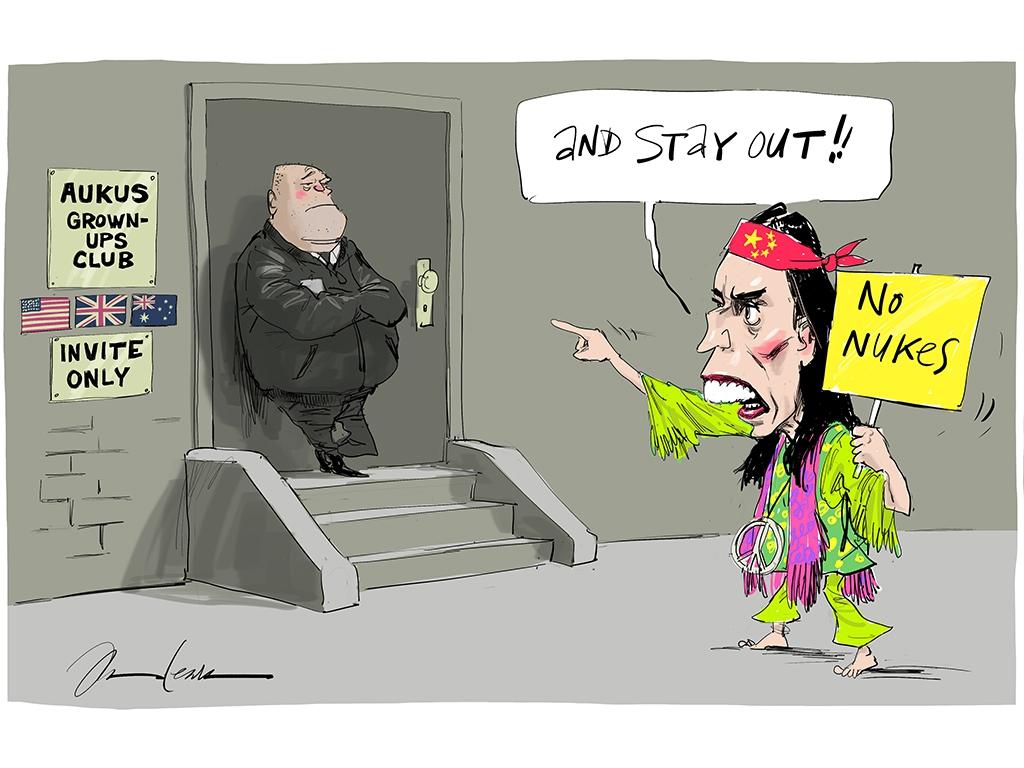
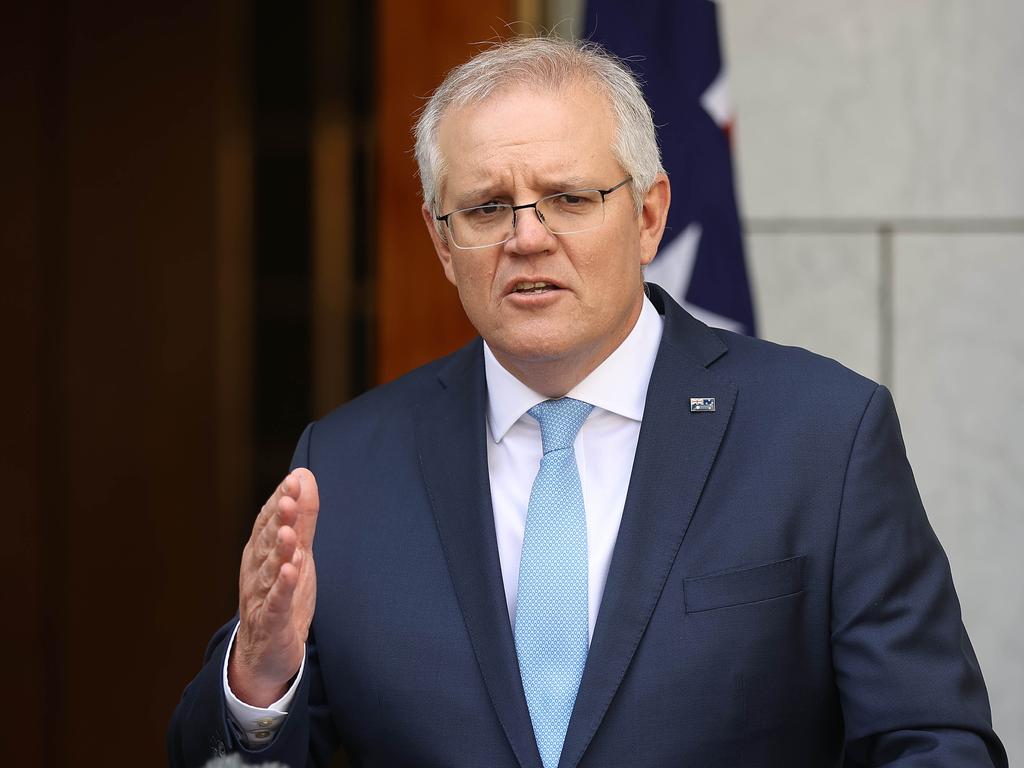

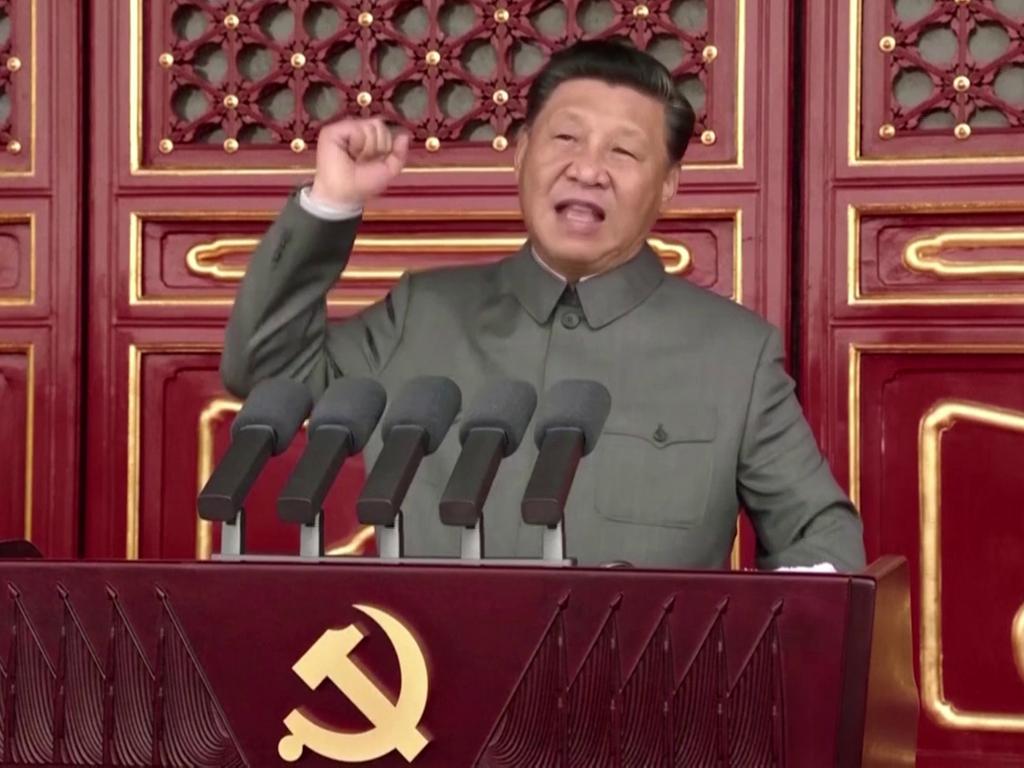


To join the conversation, please log in. Don't have an account? Register
Join the conversation, you are commenting as Logout